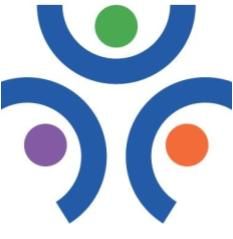ADD/ADHD
People with ADHD may have trouble paying attention, controlling impulsive behaviors, or be overly active. Although ADHD can’t be cured, it can be successfully managed and some symptoms may improve as one ages.
ADHD is one of the most common neuro-developmental disorders of childhood.
Though it is normal for children to have trouble focusing and behaving at one time or another, children with ADHD do not grow out of these behaviors. For children with ADHD, these behaviors are usually more extreme and can cause difficulty at school, at home, or with friends.
A child with ADHD might:
- daydream a lot
- forget or lose things a lot
- squirm or fidget
- talk too much
- make careless mistakes or take unnecessary risks
- have a hard time resisting temptation
- have trouble taking turns
- have difficulty getting along with others
The DSM-V (American Psychiatric Association’s Diagnostic and Statistical Manual) Criteria for ADHD recognizes ADHD as “a persistent pattern of inattention and/or hyperactivity-impulsivity that interferes with functioning or development”.
Within this definition of ADHD, the APA also recognizes that there are three different types of ADHD, depending on which types of symptoms are strongest in the individual:
- Predominantly Inattentive Presentation: It is hard for the individual to organize or finish a task, to pay attention to details, or to follow instructions or conversations. The person is easily distracted or forgets details of daily routines.
- Predominantly Hyperactive-Impulsive Presentation: The person fidgets and talks a lot; may interrupt others or speak at inappropriate times. It is hard to sit still for long (e.g., for a meal or while doing homework). Smaller children may run, jump or climb constantly. They have a hard time waiting their turns or listening to directions.
- Combined Presentation: Symptoms of the above two types are equally present in the person.
Because symptoms can change over time, the presentation may change over time as well. The causes for ADHD are unknown, but current research shows that genetics plays an important role.
In most cases, ADHD is best treated with a combination of medication and behavior therapy. No single treatment is the answer for every child and good treatment plans will include close monitoring, follow-ups and any changes needed along the way.
Lake Michigan Academy Helps Students with ADHDRecognizing the symptoms of ADHD and how they can impede on a student’s progress and success in school, Lake Michigan Academy provides a structure in its program that enables students to experience success and instills confidence in students with ADHD.
We provide:
- Small class sizes
- Use of multi-sensory/ hands on activities and tools
- Organizational support
- Individualized/skill-targeted homework
- Teachers are trained to understand the needs of the various forms of ADHD and know effective strategies and accommodations to lead students with ADHD to academic and social success.
Additional resources:
http://www.additudemag.com/
http://www.chadd.org/
http://chaddgr.org/
http://www.helpguide.org/home-pages/add-adhd.htm

